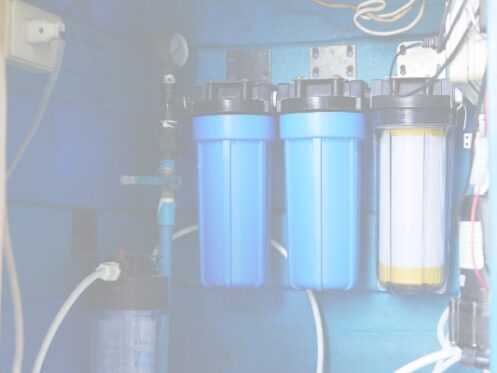Clean and safe water is a fundamental requirement for a healthy life. However, tap water can often contain contaminants and minerals that affect its quality. Fortunately, there are two popular solutions to enhance water quality: water filtration vs. water softening.
Understanding Water Filtration
Water filtration is a process designed to remove impurities and contaminants from water, resulting in cleaner and better-tasting water. Various filtration methods are available, including activated carbon filters, reverse osmosis systems, and sediment filters. Each method targets specific types of contaminants, making it essential to choose the most suitable one for your water quality concerns.
The Pros of Water Filtration
Contaminant Removal
Water filtration systems excel at removing a wide range of contaminants. From chlorine and heavy metals to microorganisms, these systems effectively eliminate harmful substances, making your water safer to consume and use.
Improved Taste and Odor
Filtration systems significantly enhance the taste and smell of water. The removal of chlorine, sulfur compounds, and other pollutants contributes to a more pleasant drinking experience.
Preserves Essential Minerals
One common concern with water treatment is the removal of essential minerals. Many filtration methods, such as activated carbon filters, retain minerals like calcium and magnesium while removing unwanted impurities.
Customizability
Water filtration systems come in various types and sizes, allowing you to select a system tailored to your specific water quality issues. Whether you’re dealing with sediment, chemicals, or microorganisms, there’s a filtration solution for you.
The Cons of Water Filtration
Initial Cost and Maintenance
While the benefits are undeniable, installing a water filtration system can have a notable upfront cost. Additionally, these systems require periodic maintenance, including filter replacement, which adds to the overall expense.
Complexity
Depending on the chosen filtration method, installation and maintenance can be complex. Some systems may require professional assistance, making the setup less straightforward for some users.
Waste Generation
Reverse osmosis systems, in particular, generate waste water during the filtration process. This waste, known as brine, can have environmental implications if not properly managed and disposed of.
Understanding Water Softeners
Water softeners are designed to address the issue of hard water, which contains an excess of minerals like calcium and magnesium. These minerals can cause scale buildup in pipes and appliances, reducing their efficiency and longevity. Water softeners use an ion exchange process to replace calcium and magnesium ions with sodium ions, resulting in softened water.
The Pros of Water Softeners
Scale Prevention and Appliance Longevity
Hard water harbors elevated concentrations of calcium and magnesium ions, which have the potential to create mineral accumulations referred to as limescale. These deposits can gradually develop within pipes, appliances, and fixtures. Water softeners prevent the accumulation of these minerals by exchanging calcium and magnesium ions with sodium ions, thus reducing scale formation. This leads to increased lifespan and improved efficiency of water-using appliances like water heaters, dishwashers, washing machines, and coffee makers.
Efficient Cleaning
Soft water aids in more effective cleaning due to its reduced mineral content. Soap and detergents lather better in soft water, allowing for easier removal of dirt, stains, and grease. This not only enhances the cleaning process for dishes, laundry, and personal hygiene but also reduces the amount of soap and cleaning products needed, saving both money and environmental impact.
Softer Skin and Hair
Hard water can leave a mineral residue on the skin and hair, leading to dryness, irritation, and a dull appearance. Water softened through ion exchange is gentler on the skin and hair, leaving them feeling softer and smoother. Individuals with skin conditions like eczema often experience relief when using soft water for bathing.
The Cons of Water Softeners
Mineral Removal
While water softeners excel at addressing water hardness, they primarily focus on minerals causing hardness. They may not effectively remove other contaminants or impurities present in your water.
Environmental Impact
The regeneration process of water softeners involves flushing out excess minerals with brine. The discharge of brine can potentially harm the environment, particularly aquatic life.
Factors To Consider When Deciding Between Water Filtration Systems and Water Softeners
Water Quality and Composition
The first crucial factor when deciding between water filtration systems and water softeners is the quality and composition of your water supply. If your main concern is removing contaminants like chlorine, heavy metals, pesticides, or microorganisms, a water filtration system is more appropriate. On the other hand, if your primary issue is dealing with hard water caused by high levels of calcium and magnesium ions, a water softener becomes the preferred choice.
Water Hardness Levels
Water hardness, measured in grains per gallon (GPG) or parts per million (PPM), determines the extent of mineral buildup caused by calcium and magnesium ions. If your water is significantly hard (above 7 GPG), a water softener is essential to prevent limescale buildup in pipes, appliances, and fixtures. If hardness is moderate to low, a filtration system might suffice.
Desired Water Taste and Odor
If you’re concerned about chlorine taste or any other unpleasant odor, a filtration system equipped with activated carbon or other specific media can address these issues. Water softeners, however, are not designed for taste and odor improvement; they target mineral content.
Health and Safety Concerns
If your water source is known to contain harmful bacteria, viruses, or contaminants like lead, arsenic, or pesticides, a filtration system with appropriate certifications (e.g., NSF 53, NSF 58) is crucial to ensure your water’s safety for consumption. Water softeners do not primarily address these health-related concerns.
Maintenance and Operational Costs
Both systems come with maintenance and operational costs. Water softeners need periodic replenishment of salt or potassium, while filtration systems might require filter replacement based on usage and the type of contaminants being treated. Evaluate long-term costs and consider factors like filter lifespan, replacement frequency, and associated expenses.
Water Usage and Efficiency
Water softeners involve a regeneration process where excess minerals are flushed out using water and brine. This process consumes water, which might be a concern in water-scarce areas. Modern water softeners come with more efficient regeneration cycles, but still, consider the impact on your overall water usage.
Installation and Space Requirements
Water softeners require installation and proper plumbing setup, including a drainage line for regeneration. They tend to be bulkier and might take up more space. Filtration systems vary in installation complexity but generally require less space. Assess your available space and plumbing setup before making a decision.
Get in Touch With Professionals Today!
Are you in need of top-notch plumbing, heating, and cooling services? Look no further than Dream Team Home Services! Our dedicated team of experts is here to provide you with exceptional solutions. From fixing leaks and installing efficient heating systems to ensuring your cooling systems are running smoothly, we’ve got you covered. What’s more, we also offer reliable electrical services to keep your property safe and well-lit. Serving Media and surrounding areas, Dream Team Home Services is committed to delivering unmatched quality and customer satisfaction. Contact Dream Team Home Services today for all your essential service needs!



